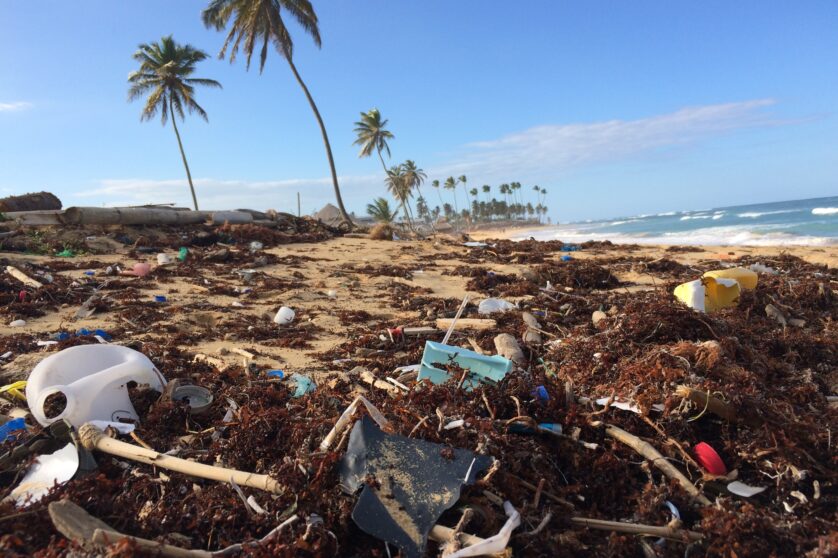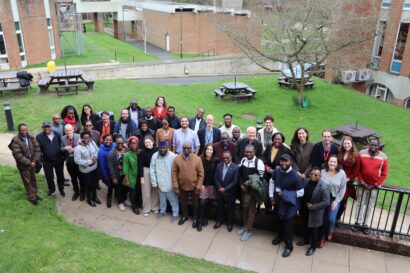The governments of many low-income countries are increasingly interested in the potential contribution of environmental taxes to both domestic revenue mobilisation and environmental sustainability. However, little evidence is currently available – particularly in sub-Saharan Africa – about the potential and impacts of existing taxes, or about the main obstacles – political, technical and administrative – to their effective deployment.
The ICTD is inviting research proposals that aim to increase our current understanding of the concrete potential of environmental taxes, and challenges to their effective deployment, across lower-income countries. This call is open to proposals related to any type of environmental tax, though we are particularly interested in proposals focused on sub-Saharan Africa, and looking at issues related to:
- The connection between forestry taxation and sustainable forest management;
- Waste taxes to promote sustainable waste management at the local government level;
- The potential role of revenue earmarking in increasing the appeal of environmental fiscal reforms;
- Institutional obstacles to the deployment of environmental taxes due to conflicting mandates across different governmental institutions, and
- The potential and limits of carbon taxes in lower-income countries in responding to the Carbon Border Adjustment Mechanism or as part of wider fiscal packages to support a green economic transition.
Background
Environmental taxes are a wide range of fiscal instruments having as their tax base economic activities with a clear environmental or energy-related dimension, such as fossil fuel extraction, motor vehicle importation, waste disposal, or exploitation of forests or fisheries. A distinction is also at times made between taxes with an explicit environmental management goal (environmental taxes proper) and those whose main scope is raising revenue from activities that have an impact on the environment (environmentally related taxes).
Environmental taxes have become common instruments across high-income countries, as they help to reduce pollution and other negative externalities while potentially allowing governments to reduce taxation of productive assets such as capital and labour. However, much less is known about their application across low-income countries, especially in Sub-Saharan Africa. While many of these countries have some environmentally related taxes in place, few have introduced environmental taxes that explicitly set out to achieve environmental goals, although some existing measures do in practice impose an implicit price on pollution or emissions (for example, excise taxes on fuels). Because these taxes are typically focused on revenue-raising, rather than environmental goals, the rates charged are rarely high enough to incentivise behavioural changes by establishing a direct correlation between the tax rate and the environmental damage of the taxed activities.
In exploring the potential for the more effective deployment of environmental taxes in lower-income countries, limited existing work highlights both technical and political questions. On the technical side, there remain important questions about how best to design appropriate and effective environmental taxes in lower-income countries in light of their distinct economic and administrative environments,. Meanwhile, existing research highlights the importance of understanding both administrative and political barriers to adoption and more effective implementation of environmental taxes, given that they have remained rare despite their potential.
The bulk of recent research and attention to environmental taxes in lower-income countries has been focused on understanding the distributive impact of carbon taxes, with that research agenda, and research approach, often modelled on study of carbon taxes in higher-income countries. However, given the distinct challenges and contexts of lower-income countries, as well as their very limited historical responsibility for the climate crisis, there is a strong case for looking at a broader range of environmental taxes and for situating that research within the context of the broader development challenges they are currently facing. For example:
- How might forestry taxes be designed and administered to improve the effectiveness and political viability of sustainable forest management practices?
- Could tax measures be a component of industrial policies promoting a green economic transformation across low-income countries, and if so, which one are more important?
- What role, if any, will the recently approved Clean Border Adjustment Mechanism of the European Union play in incentivising low-income countries to develop their own carbon taxes, and will these differ from those of high-income countries?
- And what kinds of strategies will be needed to strengthen the administrability, political acceptability and public benefits of environmental taxes?
Submit a proposal
This is a new area of research for ICTD, and we are looking to fund projects that can support the creation of much needed knowledge about how to effectively deploy environmental taxes across lower-income countries, in order to both increase their domestic revenue mobilisation capacity and improve the sustainability of their development paths. We invite proposals from any relevant academic discipline, and which use either qualitative or quantitative methodologies. We particularly invite proposals from researchers from the regions in which we work, and which involve collaboration or engagement with government authorities.
While we will consider proposals focusing on any low-income country, we are particularly interested in studies focusing on Sub-Saharan Africa, either on a single country or comparatively across countries. While we will also welcome proposals on any environmental tax, following discussions with our partner countries we are particularly interested in:
- Proposals focusing on how forestry taxes can improve the sustainable management of tropical forests;
- Proposals assessing the potential of waste taxes at the local government level as a tool to improve waste management and recycling;
- Proposals investigating whether earmarking of revenue from environmental taxes might contribute to increasing their political appeal;
- Proposals looking at the ways in which conflicting mandates amongst, and fragmented capacity across, different government institutions has complicated the introduction of environmental taxes, and how these challenges may be addressed.
- Proposals exploring the potential impact of the Carbon Border Adjustment Mechanism on low-income countries willingness to adopt carbon taxes, and whether these might be part of wider fiscal packages to support a green economic transition.
To submit a proposal, please fill in the form here, and select “Environmental Tax” as the research programme.
Most research grants are for £50,000 or less, with most grants well below that amount, but we sometimes fund larger and multi-year projects. The deadline for proposals is March 3, 2023, though we may be able to consider proposals with a relatively immediate start date more quickly. If you are unsure about whether your research idea is suitable for submission as a full research proposal you can reach out to the programme lead Dr Giovanni Occhiali at [email protected] with a short description of your project.
Calls for this proposal are now closed.



